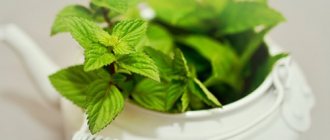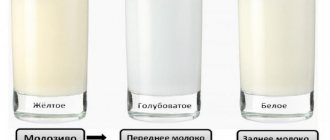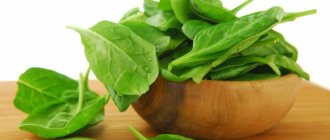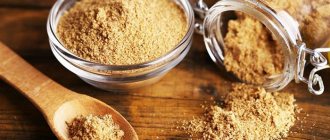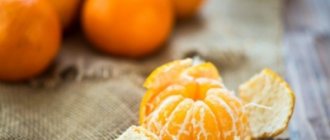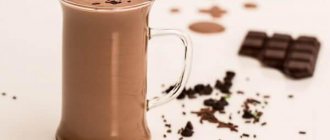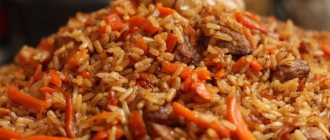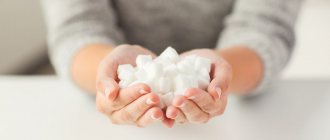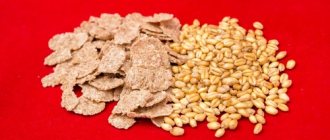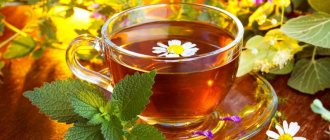The birth of a child is the most significant stage in the life of every woman. The unity of mother and baby begins with the first attachment of the baby to the breast. And any mother wants to prolong the process of breastfeeding as long as possible, because the beneficial properties of breast milk are priceless.
It contains all the necessary vitamins and elements for the full growth and development of the baby. That is why women use all means to stimulate lactation, including tea with added milk. But how useful is it for breastfeeding? Can I drink it while breastfeeding?
What type of tea is allowed for nursing mothers?
You should not deny yourself tea if the woman drank this drink every day during and before pregnancy. The main thing is to choose the type of tea and its consistency so that it does not cause harm.
Black tea can be consumed in small quantities during lactation. The tea should not be too rich so that the caffeine contained in the tea does not harm the baby and his mother. Women after childbirth often suffer from intestinal disorders, and tannins help to avoid this.
Many women choose green tea during breastfeeding. It contains many antioxidants and beneficial substances that help maintain youth and speed up metabolism. Tea contains a lot of caffeine, and it can negatively affect the baby’s nervous system and disrupt sleep. Of course, most of the caffeine remains in the mother's body, but even its remnants can cause anxiety in the baby.
White tea is rare and not familiar to everyone, but it is very useful during breastfeeding. It harmoniously combines all the benefits of green and black teas. It contains no caffeine or alkaloids. This tea is rarely found in bagged form, which is only beneficial, since a nursing woman should not take bagged or granulated tea.
Can tea with milk improve lactation?
There is often an opinion that tea with milk during breastfeeding increases the fat content and quantity of milk. And if the milk is also condensed, then the drink becomes doubly healthier. These arguments, unfortunately, have nothing to do with reality. It’s not hard to believe if you know the physiology of lactation.
Milk reduces the caffeine levels in tea to some extent. But at the same time, cow's milk contains the protein casein, which interferes with the absorption of antioxidants contained in tea. Thus, cow's milk reduces the beneficial properties of tea.
Fresh cow's milk contains estrogens, female sex hormones, which will negatively affect lactation. In addition, milk is an allergenic product, and breastfeeding women should consume it in its entirety with caution.
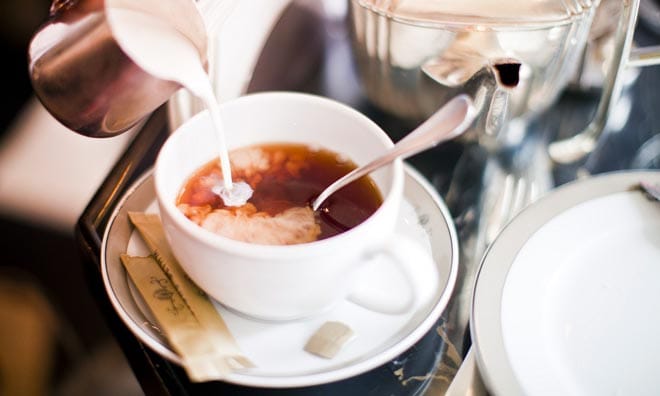
Tea with milk does not increase lactation
An occasional cup of tea with milk will not harm either mother or child. Pouring liters of tea with milk into yourself to increase lactation is pointless and even dangerous.
What kind of tea should you not drink?
What tea is not recommended for a nursing mother to drink? Is it possible to avoid the harmful effects of tea?
- Tea with bergamot. Bergamot is a citrus plant. The baby may become allergic to it. Mom will be able to try the drink only four months after giving birth. If there are no allergies, you can drink no more than 300 ml per day.
- Hibiscus tea is not recommended during lactation. Sour tea with a bright burgundy color can spoil the taste of breast milk and cause allergies.
- Drink tea with added lemon with caution. The drink can be drunk only when the child is not allergic to citrus fruits.
Coffee during breastfeeding: yes or no?
The menu of a breastfeeding woman seems bland and monotonous. In fact, sometimes a strict diet is only required for the first time after childbirth, and modern cooking is so rich and saturated that a nursing mother can easily replace her favorite ingredients with healthy analogues. In addition, the topic of nutrition during breastfeeding is so relevant that it has become overgrown with a large number of myths about the usefulness of certain products. For example, one of the most controversial issues that mothers are interested in is whether coffee can be consumed while breastfeeding? Or is it better to limit ourselves to its substitutes?

Whether to drink coffee during breastfeeding or not is a controversial issue. Subject to certain rules, drinking coffee is not prohibited for a nursing mother.
In fact, sometimes a strict diet is only required for the first time after childbirth, and modern cooking is so rich and saturated that a nursing mother can easily replace her favorite ingredients with healthy analogues.
When to avoid using
It is forbidden to drink coffee while breastfeeding in the following cases:
- Development of an allergic reaction in a baby to milk in a coffee drink. It manifests itself as a runny nose, abnormal stool, and rash.
- After drinking breast milk, the child becomes restless, agitated, cries, and sleeps poorly. Caffeine is slowly eliminated from the child’s body, so its accumulation causes negative effects on the nervous system.
- Prescribing aminophylline to a nursing mother as prescribed by a doctor. When combined with caffeine, its effect on the body is enhanced.
In the absence of these points, it is allowed to drink coffee while breastfeeding.
After drinking breast milk, the child becomes restless, agitated, cries, and sleeps poorly.
Effect on the baby: caffeine in breast milk
The following manifestations are possible:
- Caffeine does pass into breast milk, but the baby receives about 1-1.5% of the amount of caffeine that the mother receives [1] [5].
- The appearance of a large amount of caffeine in the body makes the child restless, prone to agitation, tearfulness, disrupts sleep, and affects appetite [2].
- The half-life of caffeine is about 97.5 hours in a newborn, 14 hours in a child 3-5 months old, and 2.6 hours in a child older than 6 months. By comparison, the half-life of caffeine in an adult is 4.9 hours. To completely remove a substance from the body, five half-lives are required, i.e. up to 20 days. [13]
- Peak levels of caffeine in breast milk are detected 60–120 minutes after ingestion [4] .
- Caffeine is harmful during lactation because it reduces the amount of milk produced by the mother: there is no evidence for this theory. Additionally, one study suggests caffeine's ability to stimulate breast milk production [8] .
Conclusion : Consuming one cup (up to 300 ml) of the drink does not appear to provide significant amounts of caffeine to an infant [4].
Caffeine has a number of restrictions starting from the 3rd trimester of pregnancy in terms of the amount of permissible daily dose due to the high half-life of caffeine in children under 6 months of age 13.
Herbal teas for breastfeeding
Herbal infusions, selected independently, can cause harm. It is better to choose tea from those approved by specialists, which are sold in pharmacies. What kind of tea can a nursing mother drink?
Tea with lemon balm. This is a hypoallergenic herb that will not cause allergies in the baby. But this tea helps fight colds and stabilizes the functioning of the nervous system.
Chamomile tea. Chamomile is a beneficial plant, but often causes allergies. Can only be taken after consultation with a specialist.
Blooming Sally. Fireweed tea is useful for lactation. It improves blood circulation, helps restore hormonal levels, and overcome anemia.
Tea with oregano. Useful for insufficient lactation. It has antiviral and antibacterial effects and calms the nerves. Tea is safe for babies, since oregano rarely causes allergies.
Tea with linden. It helps fight infection, calms the nervous system, reduces stress, and helps relieve colic.
Anise tea. Recommended for decreased lactation, stress, and intestinal colic.
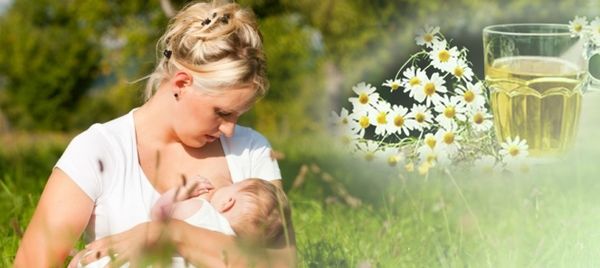
How to drink tea while breastfeeding
When choosing any of the classic teas: black tea, green or red, it is better not to make an infusion that is too strong.
It is better to drink the drink warm, drunk before feeding the baby, it will increase the flow of milk. A cold or hot drink does not have this effect.
You should not overuse too sweet tea; if you cannot resist, it is better to replace the tea with fructose. It is worth remembering that sugar can cause diathesis or intestinal colic in children.
When choosing herbal tea, you should go to the pharmacy, where the pharmacist will be able to offer tea that is approved for breastfeeding.
Tea is one of the main ways to replenish fluid loss in breastfeeding women. It is necessary to take into account that sometimes a favorite drink can negatively affect the baby’s health. Some varieties contain caffeine, which has a stimulating effect on the body; they should not be consumed during lactation. Among the variety of teas, there are also unusual ones: with jasmine, bergamot, lemon balm, ginger and hibiscus. You need to find out which drink will not harm the baby. Many teas, especially bagged ones, contain dyes, fruit additives and flavor enhancers that can cause serious allergies, so when purchasing a tea drink, you should carefully read its composition on the packaging.
Is it possible or not?
Can a nursing mother have green tea with milk or should she prefer black tea? Yes, you can drink this drink. But there are several nuances when choosing a product that a nursing mother should know.
First, you need to decide what kind of tea the woman is going to drink: black or green? The first during breastfeeding is less beneficial for the mother than the second. But this does not mean that you cannot drink it with milk.

Is tea good for nursing mothers?
The main question that arises among young women after childbirth is: “Can a nursing mother have tea (see also: can nursing mothers eat or drink ginger?)?” Dr. Komarovsky claims that purified drinking water is ideal for mothers to replenish fluid deficiency, but not all women are able to drink only water during the day. Experts in natural feeding say: for lactation to be successful, a woman should drink about 2.5 liters of liquid per day. You can diversify your drinking diet by drinking tea; some varieties will be beneficial for the health of mother and child. The basic rule is to drink tea drinks in small portions and carefully, having first studied the properties and composition.
Tea composition and beneficial properties
Tea leaves contain tannins, catechins and polyphenols - these are tannins that have a healing effect. In medicine, these elements are often used as an antiseptic and hemostatic agent. In addition, the tea drink contains vitamin C, which strengthens the immune system and protects the body from viruses, and vitamin K, which improves blood clotting. Green tea contains five times more vitamins that are beneficial to the body, which is why green tea is preferable during breastfeeding. Speaking about the benefits of drinking tea, we should not forget about pleasant moments. Your favorite drink improves your body tone and improves your mood. If during pregnancy a woman regularly had tea parties without negative consequences, then she should not give them up during breastfeeding.
Additional beneficial qualities of tea leaves:
- have an antioxidant effect (strengthen the immune system, remove toxins);
- have antiseptic properties and strengthen gums;
- stimulate thinking processes and strengthen the nervous system;
- have a mild diuretic effect, improve metabolism, accelerate weight loss;
- stimulate digestive processes, reduce blood pressure.
Beneficial properties of tea
Black and green tea are harvested from the same tea bush of the Camellia genus. They differ only in the manufacturing method. When producing green varieties, oxidation (fermentation) of tea leaves with air stops earlier than for black ones. Therefore, green tea retains more beneficial elements than black tea.
We suggest you read: Can pregnant women use drotaverine instead of noshpa?
The tea leaf contains vitamins A, C, E, proteins and amino acids. The phenols included in the composition act as an adsorbent and remove heavy metals from the body. Tannins provide astringency, and essential oils provide aroma and taste. Tannin lowers cholesterol levels. Alkaloids, one of which is caffeine, tone the nervous system. Antioxidants protect cells from the negative effects of free radicals.
Some mothers prepare milk tea this way: pour a little cow’s milk into the finished drink. But experts do not consider this method correct. We offer delicious recipes for making tea and milkshake.
The recipe is quite simple, it can be easily prepared at home using the following algorithm:
- the teapot should be rinsed with boiled water;
- 3 teaspoons of tea leaves are placed in a teapot;
- pour boiling water so that the leaves are covered with water;
- leave to brew for 5 minutes;
- add boiling water to the middle line of the teapot;
- wait about 3 minutes;
- add water to the teapot to the brim (2 teaspoons will require 400 milliliters of boiling water);
- boil 1.5 cups of milk.
The last step is to pour the milk into cups and then add the brewed black tea. It is better not to add sweetener.
Using this method of preparing the drink, you can get an unusual flavor by boiling the tea leaves directly in boiling cow's milk.
This tea and milkshake is prepared as follows:
- bring 500 milliliters of milk to a boil;
- reduce the gas and add 2 tsp. tea leaves in a container with milk;
- lets the milk boil again;
- reduce the gas to a minimum and simmer the product for another 3 minutes.
At the end, remove the drink from the heat and leave it to infuse. After a quarter of an hour, simply pour the boiled tea into mugs and enjoy the new shades of taste.
Such a drink can please a nursing mother with its exquisite honey smell and taste (without the presence of honey), and the beneficial properties of each component can improve the woman’s health.
The cooking instructions are as follows:
- green tea leaves and linden blossom are placed in the vessel;
- pour cold water and bring to a boil;
- remove from heat and let the tea steep;
- heat the milk;
- pour the tea-linden infusion into the boiled milk (take 100 ml of herbal infusion per 100 ml of milk).
This combination is quite unusual, but every nursing mother should like it. Try, experiment, delighting yourself and your child with new tastes!
Caffeine
When it comes to the question of whether a tea drink is beneficial or harmful for nursing women, many young mothers worry about the effect of caffeine on the baby’s condition. However, caffeine is not as dangerous as they say. A mug of tea contains 10 times less caffeine than the same mug of freshly brewed coffee. However, the effect of tea caffeine lasts much longer. If you drink sweet tea in moderate doses, caffeine can normalize metabolic processes in the body, relieve accumulated fatigue, improve digestion and increase performance.
Table - How much caffeine is contained in a tea drink:
| Type of tea drink | Caffeine per 100 g. |
| Baykhovy | 40 |
| Green | 20 |
| Red (from pink petals, hibiscus) | 30 |
| White | 5 |
| Herbal | Does not contain |
| Fruit | Does not contain |
| With bergamot | 20 |
| With ginger | 10 |
The most tonic of all types of tea is black, so it is recommended to drink it only in the first half of the day, without brewing it strongly. Green tea contains less caffeine and can be consumed throughout the day until 8 pm. At night, it is better to drink a mug of white infusion - this variety contains virtually no caffeine. You need to be very careful with fruit and herbal types of tea drink in the first months after childbirth. Despite the complete absence of caffeine, these infusions can cause severe allergic reactions.
Types of tea
Green tea is the most popular variety among women during breastfeeding. It is included in the diet for the purpose of losing weight and restoring the body after intense training.
How to organize “green” tea parties correctly:
- no need to drink the drink on an empty stomach or at night;
- It is better to brew the leaves in a clay pot - this way the taste of the drink is revealed more fully;
- there is no need to pour boiling water over the leaves, the water temperature should not exceed 70-80 degrees;
- the brewing speed depends on the variety and can vary from 20 seconds to 15 minutes;
- the norm of tea drinking per day without harm to the body is no more than two;
- if mom doesn’t eat sugar, you can sweeten green tea with fructose;
- for tea drinking, it is better to take small mugs of 150 ml, drink 15-20 minutes before feeding the baby;
- Do not add milk or cream to the mug - this will reduce the risk of colic.
Herbal tea drink combines the natural benefits and natural taste of herbs, fruit trees and medicinal plants. Herbal infusions have long been famous for their healing and soothing properties. For medical purposes, infusions are used to treat inflammatory diseases and antibacterial therapy. Some herbs can cause allergies, so it is not recommended to use herbs during pregnancy and lactation, when a woman’s hormonal levels are disrupted.
Herbs can provoke diathesis, disruption of the baby’s fragile heart, kidneys and stomach. Drinks made from brewed raspberry, cherry, and blackberry leaves with the addition of oregano are considered the least dangerous during this period (more details in the article: How do raspberries work during breastfeeding?). Before you start taking herbal tea, it is better to consult your doctor.
In culinary recipes, lemon balm is used as a seasoning for meat dishes and salads. Fresh lemon balm leaves are great for decorating desserts and ice cream. Most often, lemon balm decoction is used as the main drink during lactation. For the decoction, use hot water at a temperature of 90 degrees. Boiling water will destroy all the beneficial trace elements of the grass. Tea leaves are brewed for 7-10 minutes. To improve the taste, it is recommended to add lemon or rose hips to the drink. You should not take lemon balm if a woman has allergies, individual intolerance to the plant, or diseases associated with low blood pressure.
Bergamot is a representative of citrus plants and contains essential oils. Drinking tea with bergamot while breastfeeding is not recommended - it can provoke allergic reactions in mother and baby. After the child turns six months old, an infusion with bergamot is recommended for use in small portions 3-4 times a week.
Ginger root is used to cleanse the body, prevent colds and viral diseases. For medical purposes, a tea drink with ginger is used to eliminate iron deficiency. During lactation, ginger can become a strong allergen, so it should be used with great caution, but not earlier than three months after the birth of the baby.
You need to start drinking ginger tea in small doses. After the first use, you need to take a break of 1-2 days to monitor the child’s reaction. If you have redness, pimples or food reactions, it is better to stop drinking tea for 2-3 weeks.
If no reactions are detected, it is possible to gradually increase the dose of the drink from a quarter of a mug to the usual norm. Lemon, linden, oregano can be good additions to ginger infusion - they will make the drink more healthy and tasty.
Of all the tea drinks, black tea is the least beneficial for breastfeeding due to the content of theine, a substance similar in properties to caffeine. Pediatricians and breastfeeding specialists say that drinking black tea is one of the causes of colic and intestinal problems in babies. If it is impossible to refuse tea drinking in the first months after childbirth, you should adhere to the following rules:
Red tea, made from hibiscus flowers, is a delicious drink beloved by many connoisseurs of tea ceremonies. Hibiscus can cause allergies in a child, so before regular use it is necessary to check the baby's reaction.
Allergies manifest themselves in the form of a rash on the face and body, lethargy, decreased appetite and food reactions: diarrhea, constipation, dysbacteriosis. Hibiscus can provoke chronic diseases of the kidneys and urinary tract in a fragile infant body. Before drinking tea, you should carefully read the composition and make sure that there are no dyes, flavors or flavor enhancers in the hibiscus. Tips for using hibiscus:
- The maximum amount of drink is no more than 3 cups per day. If you want more liquid, you should drink a white infusion or rosehip decoction (we recommend reading: can you drink or eat rosehip while breastfeeding?).
- There is no need to brew a strong drink - half a spoon of tea leaves is enough. For mothers, a safe dose is 300 mg of drink per day.
- It is not advisable to add sugar or sweeteners to the mug. In the absence of allergies, it is worth improving the taste of the drink with the help of fructose.
- Honey should absolutely not be used as a supplement. This is the strongest allergen that the baby’s fragile body cannot cope with on its own.
Linden tea is allowed for nursing mothers to drink. It is especially useful for lactation. Carotene and vitamin C have an anti-inflammatory effect and improve immunity. Linden petals are brewed with water at a temperature of 90 degrees. The brewing time is 25-30 minutes, during which time the linden flowers will release all their beneficial substances. For stable milk supply, linden decoction must be consumed regularly 3-4 times a week. Useful properties of linden decoction:
White tea is a good lactogenic drug; the drink increases the flow of milk if you brew it just before feeding. The drink is the safest in terms of its effect on a woman’s nervous system; it contains an order of magnitude less theine compared to black and green varieties. Despite the relative safety, the decoction norm is no more than 3 cups per day. There are several rules for drinking the drink:
- To improve the taste, it is not recommended to use honey and sugar; these additives can cause allergies and intestinal upset in the baby.
- You need to brew the leaves in a minimum dose - 1-1.5 teaspoons per liter of boiling water, the usual rate is 2-2.5 tablespoons.
- Tea bags should be excluded from the drinking diet - the bags contain waste from tea production, dust and dyes; such a drink will not bring any benefit.
- It is better to give preference to large-leaf tea, which is sold by weight.
- The brewing temperature should not exceed 70-80 degrees; To brew, use a closed teapot or cover the glass with a paper napkin.
Dairy cream during breastfeeding: pros and cons
The diet of a nursing woman is divided into several important stages. Over the course of 3 months, the functioning of the newborn’s digestive system, as well as the process of producing digestive enzymes necessary for the breakdown of breast milk, takes place. During the first 3 months of life, the main food for a newborn is mother’s milk, so at this stage there are special requirements for the components of the mother’s diet.
The consumption of certain foods causes the development of digestive disorders in the baby, the appearance of intestinal colic and the formation of intestinal dysbiosis.
During lactation, a woman is strictly prohibited from consuming the following products:
- fruits from the citrus family;
- products containing cocoa powder (chocolate);
- bell and hot peppers, garlic, onions, celery;
- legumes;
- spices, rye bread, carbonated drinks, grapes, black tea and coffee;
- alcoholic drinks, including beer.
All these products can cause indigestion and increased gas formation in the baby’s intestines.
The list of recommended products includes:
- boiled and stewed vegetables;
- cereals, cereals and muesli;
- foods rich in animal protein (cottage cheese, meat, fish);
- fresh herbs and fruits (except citrus fruits);
- fresh berries (blueberries, gooseberries, black currants).
Composition of milk cream
A high percentage of fat content is an important difference between dairy cream and whole milk. This product contains proteins, fats, essential amino acids, minerals and vitamins.
Natural cream contains an impressive amount of B vitamins, vitamin A, PP, as well as vitamin C (ascorbic acid). Of the microelements, the cream contains magnesium, calcium, chlorine, phosphorus, and copper.
Dairy cream protein has a complex structure, which includes a large amount of lecithin and other fatty acids.
Benefits and harms
This product is high in calories, so its consumption is not advisable for people with the following diseases:
- diabetes;
- atherosclerosis;
- pathologies of the heart and blood vessels;
- excess body weight;
- fatty dyspepsia.
Only moderate consumption of dairy cream can be beneficial. It is useful for people suffering from diseases of the gastrointestinal tract to use this product, since due to its high fat content, the cream coats the walls of the stomach, preventing their irritation and inflammation. The fats contained have an easily digestible structure, so the body does not expend extra energy on their processing.
Cream during lactation
A nursing woman is not prohibited from consuming dairy cream, but moderation is important in this matter. In terms of benefits, the use of this product is indicated for a deficiency of breast milk. Also, with the help of cream, a woman can increase the fat content in breast milk.
Natural milk cream contains a large amount of calcium, which is necessary for the health of the mother, the full growth and development of the bone and joint system of the newborn child.
Medical experts in the field of breastfeeding recommend that nursing mothers drink green tea with the addition of cream. The tea is drunk warm, in large sips, 15 minutes before putting the baby to the breast. The permissible fat content of cream is 12-15%. Tea with cream is useful not only for lactation, but also for the female body. This product has a calming effect on the body of a nursing mother.
When purchasing dairy cream, it is recommended to pay attention to its composition. It should not contain any foreign chemicals. In addition, care must be taken, since consuming cream in its pure form causes digestive disorders in the newborn. Too much fat causes fermentation processes in the newborn’s intestines.
In some situations, a nursing woman or child has an individual intolerance to milk cream. If an allergic reaction occurs, a woman is advised to stop using this product and consult an allergist.
vskormi.ru
Can nursing mothers drink tea with milk?
The main problem in the first months of breastfeeding in young women is the lack of milk. Pharmacy chains and kiosks offer a large number of lactagon drugs: herbal infusions, homeopathic drugs, hormonal agents. It is much healthier and safer to improve the composition and quality of human milk with the help of milkweed.
The widespread belief that drinking tea with milk stimulates lactation is unconfirmed. A woman’s milk supply is primarily influenced by physiology, genetics and the regularity of the baby’s breastfeeding. Milkweed can affect the flow of breast milk immediately before feeding; in the same way, any hot drink will improve lactation - dried fruit compote, fruit drink, hot water with lemon and sugar. An important factor is the amount of fluid consumed by a young mother. You should not pour milk into drinks with additives: jasmine, bergamot, oregano, ginger.
Milk poured into a tea mug can cause allergic reactions in babies who are intolerant to protein. In addition, milk can provoke intestinal colic and contribute to increased gas formation in the small tummy. On the other hand, milk balances the taste of the drink, reduces caffeine levels, has a slight diuretic effect, and reduces swelling.
Adding milk to tea can compensate for the lack of calcium and healthy fats in mothers. Milk helps a woman recover faster after childbirth and adapt the baby to the world around her. It is better to drink unsweetened milk tea, replace sugar with fructose. An excessively sweet drink, according to many pediatricians (including Komarovsky), can provoke intestinal disorders.
Milk tea should be consumed carefully, carefully observing the child’s reaction. When the first signs of allergic reactions appear, use should be stopped immediately. It is recommended that your baby be tested for protein allergies. You need to start drinking tea with small portions: half a mug per day. If the baby’s well-being has not changed in any way - there is no rash, the tummy is calm, the baby is not bothered by colic, then you should continue taking the tea drink (we recommend reading: how to properly massage for colic in newborns?). Whether tea drinking during feeding is beneficial, each mother decides for herself independently, focusing on the health and well-being of the baby. If a child has become capricious, has trouble falling asleep and is nervous, it is better to stop drinking tea and replace tea drinks with others that are no less healthy: compotes, fruit drinks, uzvars.
Hello dear parents. Every mother knows that while breastfeeding, you need to drink up to two liters of liquid. It is not surprising that a third of the drinks are teas, another is compotes and juices, and the last is water. However, some young mothers doubt whether they can drink tea while breastfeeding or not. They also begin to be interested in the question, if possible, what type of drink to give preference to, how much to drink and how to brew it correctly. This article brings together the answers to all these questions.
Admission rules
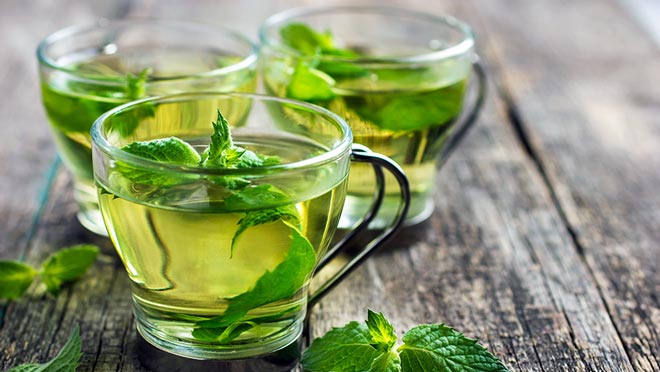
Tea with condensed milk during breastfeeding is a hallmark of pediatrics in the 20th century and is used quite rarely in our time.
In addition to its main healing properties, tea improves breast milk production and has a positive effect on the body of a nursing woman as a whole.
What kind of milk can you drink during breastfeeding? Selection of the correct and complete diet for a young woman. Milk has always occupied one of the first places in various diets.
You should start drinking milk tea with a small amount - 1/2 cup per day. In this case, you need to carefully monitor the baby’s reaction for 2-3 days. If the child’s well-being has not changed and there are no skin reactions, an increase in volume is allowed. Upper limit: 3 cups per day.
- It is not recommended to brew strong tea due to possible side effects. When it comes to breastfeeding women, experts say it is safe to consume up to 300 mg of caffeine per day.
- Sugar should be added in minimal quantities and only if the child does not have allergies, and the mother cannot drink tea without sweeteners.
- Honey as a sweet additive is not used during breastfeeding, as it can cause a severe allergy in the child, which is difficult to cope with on your own.
Caffeine can be found not only in coffee or tea, but also in carbonated drinks, ice cream, chocolate and other foods you may not even know about. Read labels carefully and make sure not to exceed your daily limit.
You need to try a tea-milkshake with a small “dose” - half a mug per day will be enough. Moreover, the mother should closely monitor the child. If there are no negative reactions within three days, you can increase the volume. Does not recommend drinking more than 3 cups per day.
We suggest you read: Is it possible for pregnant women to dye their hair: advice for the expectant mother
Please also observe the following rules:
- Avoid hard liquor, as the maximum caffeine intake for nursing mothers is approximately 300 milligrams per day.
- Milkweed should not be sweetened, but sugar is acceptable if the child reacts calmly to this additive and the mother is not able to drink the drink without refined sugar.
- It is better not to use honey in this capacity, since this product causes severe allergic reactions in many children.
Caffeine is also found in other products, including soda, chocolate, and cocoa. To avoid exceeding the maximum allowable dose, mothers should read labels carefully before purchasing nutrition.
Tea during breastfeeding is not a prohibited product. However, you should definitely listen to your body and your child’s body, and monitor your child’s reactions. It is best to consult a doctor before introducing this drink into your diet. In this case, a tea and milkshake will only bring benefits and pleasure.
Tea and lactation

Young mothers may have a very controversial issue about drinking tea while breastfeeding their baby. Some believe that such a drink can increase the volume of milk produced. Others consider this benefit not so significant and exclude tea from their diet due to the fact that it contains caffeine. There is a point here: tea does contain such an active substance as caffeine, but its content is several times lower than that of coffee.
In addition, this drink has a rich beneficial composition, which, if the recommendations are followed correctly and not abused, benefits both the health of the mother and the child. As for the opinion regarding increasing lactation, it has already been proven that it is wrong.
With proper use of any warm tea, the expansion of the ducts of the mammary glands is stimulated, due to which the flow of milk accelerates and better enters the baby’s body during the act of sucking. Don’t forget about the invigorating effect of tea, which is important when sleepless nights appear in your life.
Based on this, it becomes clear that mother can drink tea in limited quantities, but she needs to choose it correctly, brew it and drink it. Then you will not only not harm the body, but will also benefit it.
What tea to drink while breastfeeding
It is important to choose tea that is best accepted by the body of mother and child. To begin with, mom can get acquainted with the options for this drink, find out the pros and cons of each. And only then make a choice for yourself and try to introduce it into your diet. The main thing is that the drink is made from a high-quality product, consumed warm, preferably half an hour before feeding, and not drink more than two cups of tea per day.
The mother’s diet may include the following teas:
We also recommend reading the following articles:
A woman may not limit herself to only black or, for example, green tea. However, she should introduce tea into her diet gradually, and first make the little one addicted to only one type of drink, and only then to another. And then mommy can easily alternate her drinks.
I started with black tea. I brewed a weak drink when my son was three months old. Of course, I started with very small volumes. I completely gave up green tea because I have hypotension. When my son was 4 months old, I started adding milk little by little to black tea. And when he was 5 months old, I learned about the existence of white tea (I had never heard of it before). I found out what properties and composition it has, and began to drink it to a greater extent than black. I also like herbal teas, I started trying them at three months, but two weeks after introducing black tea. I especially liked the tea made with raspberry leaves. My child took all these drinks well.
This drink is the safest due to the reduced caffeine content (5% per 100 grams of product) and other active substances in its composition. Therefore, most mothers who know about this give their preference to this drink. However, you should not drink it in large quantities either. The maximum serving of this tea is three cups per day.
But do not forget that even such a seemingly harmless drink must first be administered in small portions and certain rules must be followed:
- Choose a quality product, without adding flavorings or additives.
- You should not add sugar to this drink; it is better to use honey. Just remember that at high temperatures it loses all its healing properties.
- You need to brew literally two teaspoons per liter of water.
- Pour hot water over the tea leaves (80 degrees, no more).
- The tea should be infused in a closed container for 10 minutes.

This drink already contains a larger amount of caffeine (20% per 100 grams of product), but is considered safer than black. This drink has a whole vitamin complex, a high content of minerals, and is a strong antioxidant. But do not forget that it can lower blood pressure and stimulate weight loss. Therefore, it must be introduced into your diet very carefully. And do not drink if you have already been diagnosed with hypotension or are currently pregnant.
In addition, the following recommendations should be followed:
- It is forbidden to drink tea on an empty stomach.
- Add honey to your tea instead of sugar, or don't sweeten the drink at all.
- It is forbidden to pour boiling water over tea leaves, as this will lose all the valuable properties of this product.
- It is worth brewing for as long as necessary to obtain a particular taste. The less you brew, the lower the caffeine content in the drink. Remember that with prolonged brewing, the drink acquires a bitter taste.
- You are allowed to drink two cups of green tea per day.

This drink has a high content of vitamins, especially representatives of group B, vitamin A, ascorbic and nicotinic acid; minerals, particularly iron, calcium and phosphorus. However, this tea has the highest caffeine content among other representatives of this type. 100 grams of product accounts for 40%. Therefore, its use should be minimized in your diet and adhere to the following rules:
- The maximum volume drunk per knock is one cup.
- It is contraindicated to drink this tea on an empty stomach and two hours before you go to bed.
- At first, it is worth introducing a pure drink without adding milk or lemon.
- Try not to add sugar to black tea.
- It is better to brew weak tea to reduce the concentration of caffeine.
And, of course, do not forget that only a high-quality product is suitable for a nursing mother, without adding all kinds of chemical additives. And you need to use loose leaf tea, not bagged tea. After all, it’s not even close to being able to see what’s been added there. And for the baby we must take the best.

Such drinks are the least dangerous due to the complete absence of caffeine in them. However, herbs often cause allergic reactions, and may also be contraindicated in the presence of a particular disease. Therefore, if you decide that herbal tea is the best option, then first consult your doctor before settling on any specific plant.
And here is a list of herbs that are strictly contraindicated during breastfeeding: coltsfoot, ephedra, wormwood, aloe, buckthorn, licorice, star anise, ginseng, elecampane, senna, valerian, angelica root, rhubarb root. In addition, it is believed that mint can seriously reduce lactation; it is even used to stop breastfeeding.
The most valuable herbs are the following: ginger, rosehip, raspberry leaves, lemongrass.
Is it possible to drink tea with milk while breastfeeding and during pregnancy?
Tea with milk captivates absolutely everyone with its taste and aroma and, of course, attracts the attention of pregnant and breastfeeding women.
However, both of them, for obvious reasons, are very careful about the usefulness of the food and drinks they consume.
Pregnant women and nursing mothers quite often encounter conflicting opinions about drinking tea with milk during this wonderful period of life.
In the last article, we already touched on the topic of the benefits and harms of tea with milk, and also examined several recipes for preparing this drink.
Milkweed during pregnancy
Pregnancy is a period of life, which, on the one hand, represents a pleasant expectation, and on the other, is accompanied by serious experiences. Of course, when thinking about the question of whether to drink milk tea, a pregnant woman worries about the health and well-being of her baby.
So, let's look at the benefits of drinking milk tea during pregnancy:
- The body of mother and baby is saturated with many vitamins and microelements that are so necessary during this period of life.
- Many women note that tea with milk can soften the manifestations of toxicosis . In addition, unfortunately, in some women, toxicosis is so severe that they cannot eat anything at all, and tea with milk in this case is an excellent source of all the essentials in one cup.
- Tea with milk has a slight calming effect. We all know that pregnancy is often accompanied by mood swings and various experiences. Tea with milk will also help you calm down.
However, the drink also has its drawbacks :
- Tea contains caffeine, which may be harmful to your baby . Milk, of course, cannot be contraindicated for pregnant women, but tea should be consumed in very limited quantities. Therefore, be sure to add only a small amount of tea to the milk. Do not drink more than one to two cups of drink per day.
- Diuretic effect of milkweed . Many pregnant women experience a constant urge to urinate, and milk tea can make them need to go to the restroom more often.
- Excessive consumption of milk tea can affect the health of mother and baby. Please use caution and always contact your doctor if you have any questions or concerns.
Today, many people drink coffee in the morning to cheer themselves up before starting a new day. But can nursing mothers have coffee? In this article we will fully examine this issue.
Do you know that with the help of linden tea you can solve many women's problems and diseases? We bring to your attention an article about the therapeutic effect of linden for women during pregnancy and breastfeeding, as well as for children: https://chay-i-kofe.com/chay/vidy/travyanoy/s-lp/poleznyie-svoystva-chaya-s -lipoy-dlya-zhenshhin-pri-beremennosti-i-grudnom-vskarmlivanii/
Tea with milk when breastfeeding
Is it possible to drink tea with milk while breastfeeding? And if you drink it, which tea is better? Black or green? Sooner or later, every mother asks herself these questions.
During breastfeeding, it may be better to drink green tea because it contains 3 times less caffeine than black tea (although some scientists refute this). In addition, green tea will help a woman stay healthy, because it contains vitamins C, P, B, E, K, A and microelements (fluorine, iodine, calcium and phosphorus), which are so necessary for the body of a nursing mother.
Let's look at the pros and cons of drinking tea with milk while breastfeeding.
Advantages
- Vitamin and mineral composition of the drink. Naturally, the baby and mother simply need additional sources of vitamins and minerals, and the combination of tea and milk is simply an excellent source of everything necessary. Provided, of course, that you use good quality tea and fresh milk.
- A nursing mother is constantly thirsty, and a tea and milkshake has the ability to quench her thirst for a long time .
- The pleasure of drinking a drink. It is very important that the nursing mother is happy and in a good mood. If a cup of tea with milk brings you pleasure, then feel free to drink it, because how your baby feels depends on your mood.
- The drink gives strength to a nursing mother. Every woman with a small child knows what tiredness is in the morning.
Flaws
- Tea contains caffeine, but tea contains half as much as coffee, and its effect is longer.
How can this be dangerous for the baby? If you drink no more than three cups of milk tea a day, then most likely nothing.
Breast milk will contain only 1% of this substance, which will be absolutely safe for the baby. But it should be remembered that a child may have individual sensitivity to caffeine .
If you notice that after drinking tea or coffee, the child is more agitated, sleeps poorly, etc., then you better give up tea and similar drinks for 3-7 days.
Monitor your baby during the period of withdrawal from stimulating drinks, and if during this period he behaves more calmly, then most likely the reason is caffeine, and you will have to give up tea with milk for the entire period of breastfeeding . You can drink compotes, jelly, decoctions of dried fruits, and so on. In addition, the optimal choice for a nursing mother in such a situation would be white tea, as it has beneficial properties, but also contains a minimal amount of caffeine.
- Some babies react painfully to cow protein contained in milk. They get stomach pains. Keep an eye on your baby. If colic appears after drinking tea with milk, then, unfortunately, you will have to give up the drink.
To increase breast milk lactation
Milk tea is often recommended to increase lactation.
In fact, the drink cannot have such an effect, that is, the amount of milk will not increase, but the flow will simply increase if you drink tea with milk before feeding (like any hot drink). Thus, by drinking a drink right before feeding, you ensure a good flow of your milk to your breast and make the “work” easier for your baby.
In order for breastfeeding to be as comfortable as possible, a nursing mother needs to drink up to 2 liters of fluid per day . It can be just water, black or green tea, milk, milk tea, compote or another drink that you like.
However, it’s definitely not worth drinking certain drinks forcefully just to increase lactation. If you drink more than three liters of water per day, you can get kidney problems, and such complications can negatively affect the quality and quantity of breast milk.
Are you getting ready to become a mother? Then you need to carefully monitor not only what you eat, but also what you drink. Our article will help you find out whether you can drink green tea during pregnancy.
Herbal teas are known and popular for their medicinal properties. But women during pregnancy and breastfeeding need to treat such drinks with extreme caution. In the next article we will tell you whether pregnant women can drink tea with thyme.
Have you heard about tea that helps a woman during breastfeeding by increasing her milk supply? You can read in detail about Hipp lactation tea by following the link.
What pregnant women and nursing mothers should remember
Pregnancy and breastfeeding are very important periods in the life of mother and baby. If you drink tea with milk, then we offer several recommendations that will help you avoid the unpleasant consequences of drinking the drink.
- Monitor your well-being and carefully monitor your baby's reactions..
- Do not exceed your daily fluid intake, including tea with milk, otherwise you risk swelling or other problems.
- Also, always be responsible when choosing tea and milk. The milk must be fresh and the tea must be of high quality. Do not drink tea with flavorings and dyes , because they can harm an adult, healthy person, not to mention a pregnant woman or baby.
- Eliminate tea with milk from your diet if painful reactions occur in both your body and your baby. Be sure to consult your doctor.
Source: https://chay-i-kofe.com/chay/vidy/s-dobavkami/s-mol/mozhno-li-chay-s-molokom-pri-grudnom-vskarmlivanii-i-beremennosti/
Ready-made teas that stimulate lactation
At a pharmacy or store, you can purchase specially created teas that stimulate lactation. However, you need to know that there are both pros and cons when using such a product.
The most valuable quality of such drinks is considered to be an increase in the volume of milk produced, although you will find women who will say that it does not have such an effect, but simply, like all warm drinks, expands the ducts of the mammary glands, thereby accelerating the outflow of milk. The downside is that such teas contain all kinds of stabilizers, preservatives, and may include flavorings. In addition, such tea is usually granulated, which means that it has been subjected to repeated chemical and thermal treatments. Consequently, it could lose all its valuable properties.
So the choice is yours. Is it worth giving preference to such a drink, or is it still better to just drink a sufficient amount of warm drink.
Drink tea correctly
It is very important to know how to choose and prepare tea correctly. Therefore, I offer you the following recommendations:
Now you know that tea is allowed to be drunk during the postpartum period, when a woman is breastfeeding her baby. The main thing is not to overuse the drink and choose exactly the type that is ideal for both mother and little one. If a woman decides to introduce tea into her diet, she should study in detail what valuable properties the drink she has chosen has, and how it can harm. It is also important to know and follow the recommendations for its use. Of course, teas will not affect the increase in lactation volume, but they will help increase the rate of milk secretion and make it easier for the baby to reach. And thanks to its valuable properties, it will strengthen your body and enrich it with valuable substances. The main thing is that the baby does not develop allergies.
Almost every woman who has recently become a mother asks the question: what tea is best to drink during this difficult but pleasant period of breastfeeding. This is a really important question because... Now a woman is responsible not only for herself, but also for her baby. And it often happens that a young mother has to give up her favorite drink.
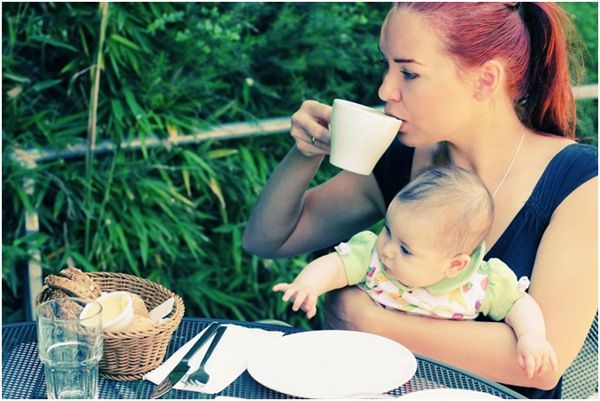
What kind of tea can a nursing mother drink?
Any hot drinks ensure a flow of milk into the breasts of a young mother. They also make the feeding process itself more efficient: the flow of milk from the woman’s breast to the baby is more intense. Therefore, drinking different teas while feeding, including those based on certain herbs, is not prohibited.
Can a nursing mother drink (subject to dosages):
- white and green tea;
- herbal infusions and teas sold in pharmacies for lactation;
- Black tea.
Important! When drinking any drink, a mother should monitor how it affects the child. The appearance of colic or diathesis in a baby may indicate that it is better for a woman to give up a particular type of tea.
White tea contains less tea caffeine than black and green tea. In this regard, this drink poses virtually no danger to women who are breastfeeding. However, you should not overuse white tea; the recommended amount is no more than 3 cups per day. Some rules for young mothers when drinking white tea:
- Its concentration should be weak. To obtain such a drink, take 2 tsp. tea leaves per 1 liter of water.
- It is better to choose large-leaf varieties rather than tea bags. The latter usually includes small tea leaves that are not of the highest quality.
- You need to pour tea with water, the temperature of which is 70-80 degrees. Brewing time varies, usually 3-5 minutes (but can be longer).

Green tea contains more caffeine than white tea. The recommended daily dose of green tea for new mothers while breastfeeding is no more than 2 cups. Nuances of use:
- It is better not to take the drink on an empty stomach, or shortly before bedtime (a cup of green tea drunk late in the evening can lead to insomnia).
- Fructose can be used instead of sugar.
- Tea should be brewed according to the manufacturer's recommendations. The water temperature usually varies in the range of 70-90 degrees, and the infusion time depends on the variety.
Today, pharmacy shelves are full of many different teas, the manufacturers of which promise women an intensive increase in the volume of breast milk. The effectiveness of these fees is controversial. Their customers often talk about the lack of the declared result. Examples of lactogenic teas include: Hipp, Humana, Lactaphytol, Laktomama, etc. All these are complexes based on medicinal plants: fennel, caraway, lemon balm, galega, etc. Also, to give special taste qualities, various additives are included in such teas.
Most often, these fees are sold in bags or in granule form. As a rule, the only contraindication to the use of special teas for lactation is an allergy to the components of the product in a nursing woman or her child. Therefore, you can drink such drinks (according to the recommendations indicated on the packages), but you should not expect a miracle (although self-hypnosis can also play an important role in increasing the amount of milk).
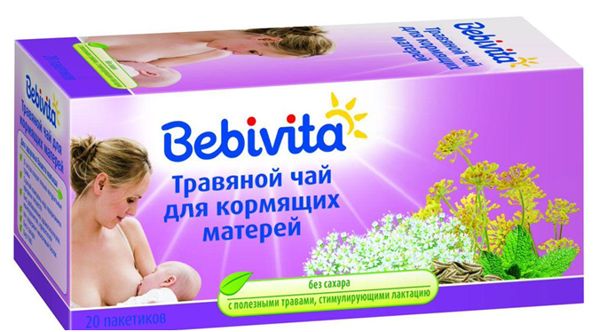
You can prepare a herbal drink yourself. However, at the same time, young mothers need to be extremely careful when choosing medicinal plants, because The use of some of them is not recommended during breastfeeding. You can brew tea with nettle or fennel. The recipes for these herbal teas are simple, and therefore preparing the drinks will not take much time. But teas with sage or peppermint are contraindicated for women who still want to feed their babies breast milk. Often these drinks are used to reduce and completely stop lactation.
Note! Often herbs are strong allergens, so taking herbal teas should start with a couple of spoons. If the mother and child do not show allergy symptoms (rash, runny nose, cough, etc.), then the use of herbal drinks can be continued, gradually increasing the volume to 1-2 cups per day.
Black tea is less often recommended for nursing mothers compared to the above drinks. It's all about the relatively high caffeine content. Despite this, black tea can be taken by following a few rules:
- The recommended maximum dose for new mothers is 1 cup per day. The frequency of tea drinking can be increased if you brew weak, very weak tea.
- It is not advisable to take it on an empty stomach or before bedtime.
Many people love black tea not only for its taste, but also for its beneficial properties. Therefore, it is often not easy for nursing women to give up this drink. However, during the lactation period it should be used as carefully as possible, because When it enters the baby's body with mother's milk, it often causes digestive disorders in the child.

What drinks do you prefer?
During lactation, mothers should consume the required amount of fluid. Breastfeeding experts allow drinking tea (of course, not on the first day after delivery), but the choice of the type of drink is decided by the woman, depending on her preferences and the effect it has on the child.
Black teas
This drink contains about three hundred active components, among which the following stand out:
- vitamins C, PP, K;
- useful organic pigments;
- natural oils;
- tannins;
- minerals (fluorine, phosphorus, etc.).
These substances are useful for the normal development of the child and help maintain the immune system. This is why black tea during breastfeeding can turn into a healthy and pleasant treat for mother and baby, of course, provided that the product is chosen correctly.
Green teas
A green drink is considered healthier than a black one. This type of tea contains antioxidants that slow down aging.
In addition, they also help remove various harmful substances and fats from the body, and this, you see, is quite important for mothers during lactation.
There is only one negative factor that can be identified - green tea contains caffeine, which can potentially lead to anxiety and nervousness in a child. However, if tolerated well, a warm drink during lactation only brings benefits.
A green tea milkshake is especially useful if a woman suffers from frequent stress, nervous tension,
postpartum depression
or insomnia.
Herbal drinks
If a child reacts sharply to black or green teas, the mother can switch to herbal infusions.
The most common is linden blossom tea, which has virtually no contraindications, with one exception being the hypersensitivity of a woman or child.

Useful qualities of linden tea:
- fights inflammatory processes;
- increases the body's defenses;
- hypoallergenic;
- reduces the severity of infant colic;
- incredible aroma and taste.
Another useful property is that linden blossom stimulates the secretion of milk. With a decrease in lactation and a decrease in the natural product, you can drink such herbal teas three times a week.
Chamomile is also a common herb for making tea.
However, a nursing mother should use it with great caution - chamomile affects the secretion of milk, and most women experience a decrease in its volume.
We suggest you read: Is it possible to get a tattoo during pregnancy?
If a woman does not experience difficulties with lactation, chamomile is allowed for use. You can drink herbal teas with this plant twice a day: in the morning and before falling asleep.
If you have problems with milk, chamomile is not prohibited, but it is not recommended either. In this case, chamomile is steamed with boiling water only a couple of times a week.
In addition, vitamin drinks from plants such as:
- rose hips;
- fenugreek;
- raspberry leaves;
- ginger.
It should be understood that cow's milk is a rather “selective” drink that is not always combined with herbs. That is why it is rarely added to herbal infusions.
